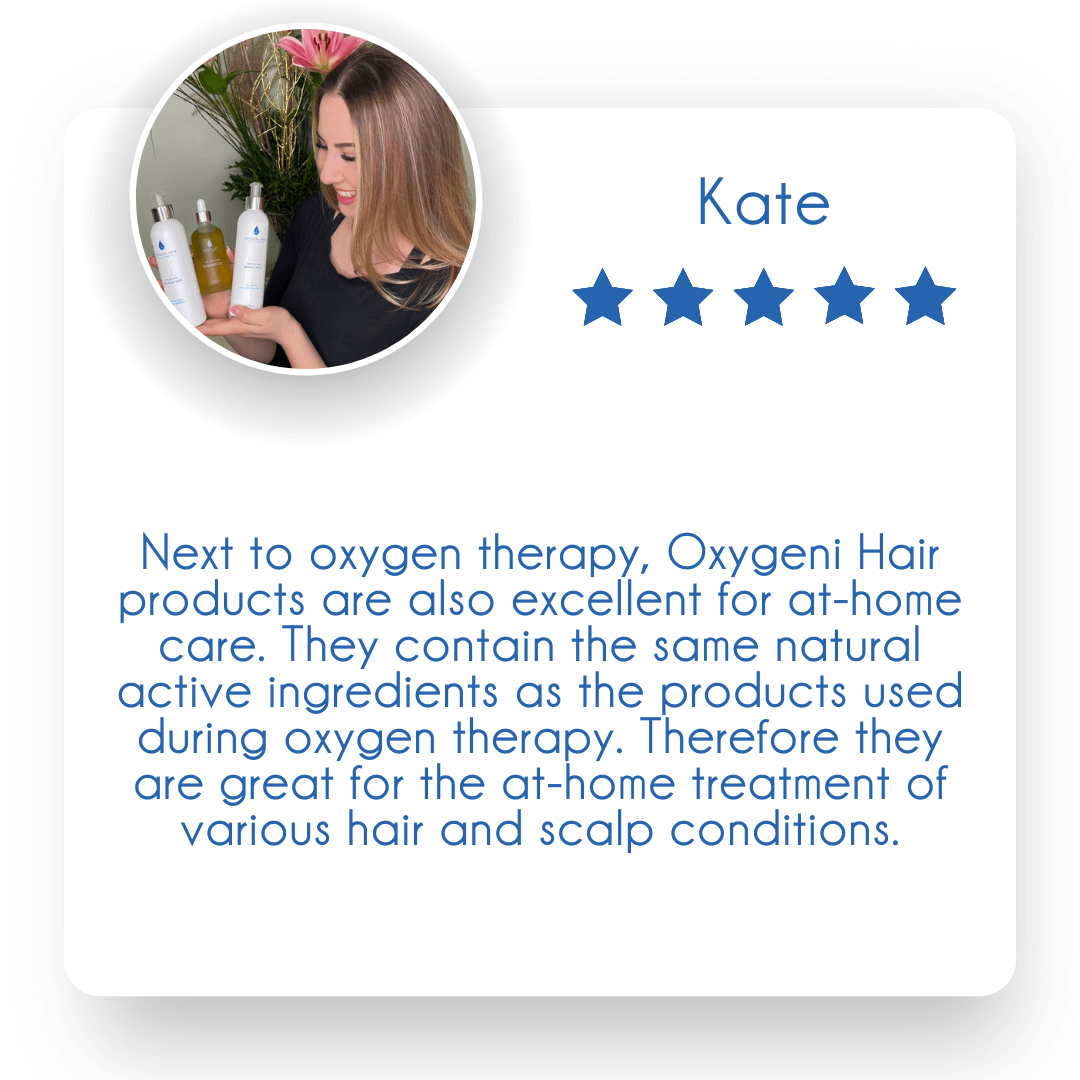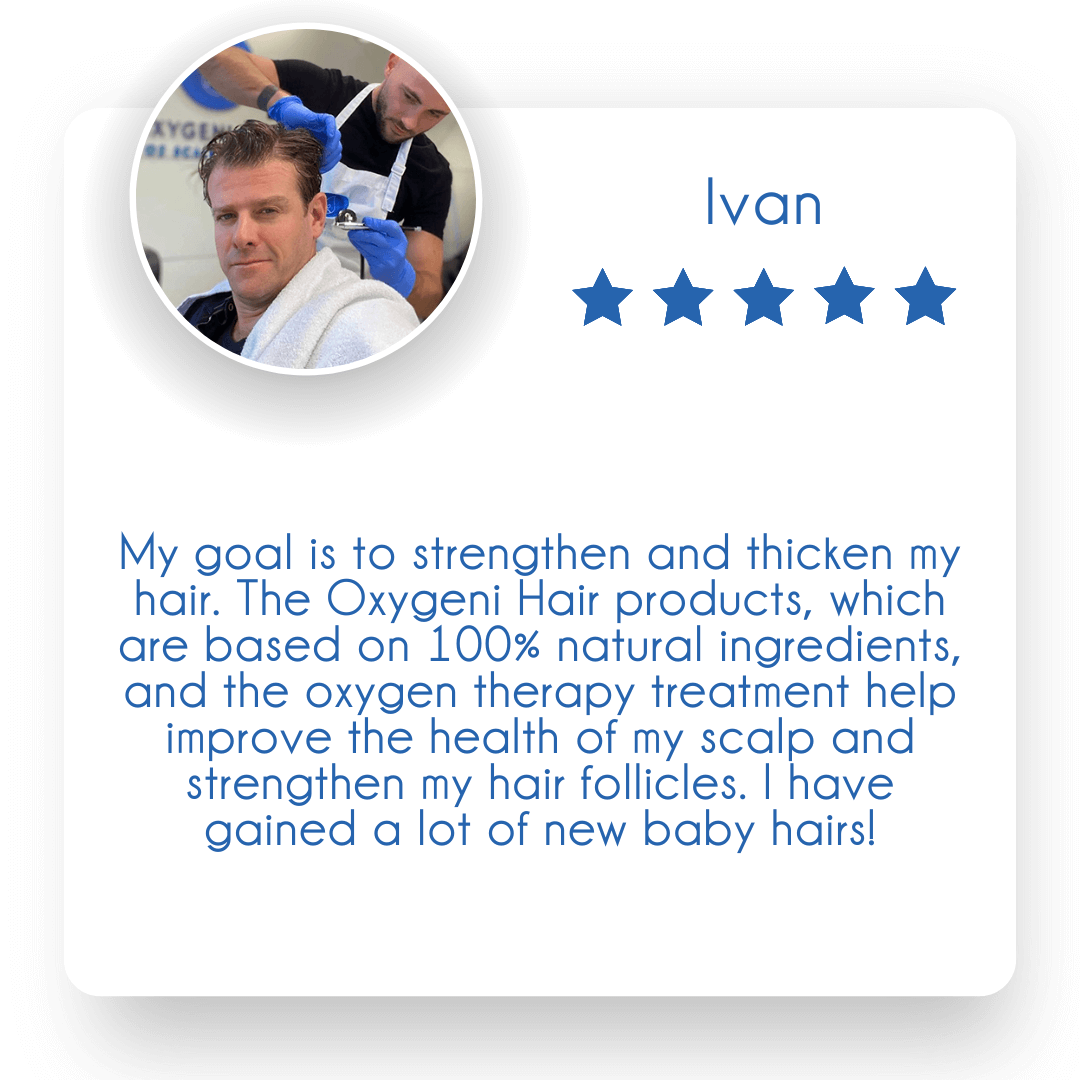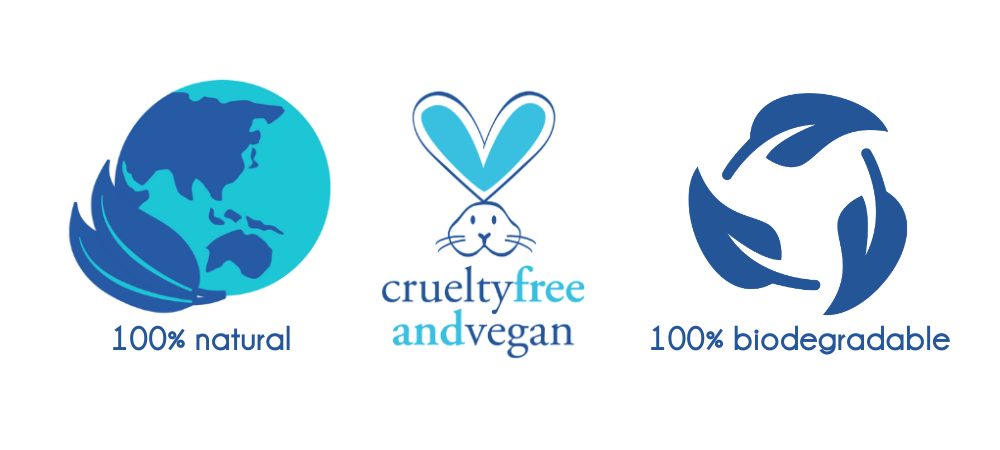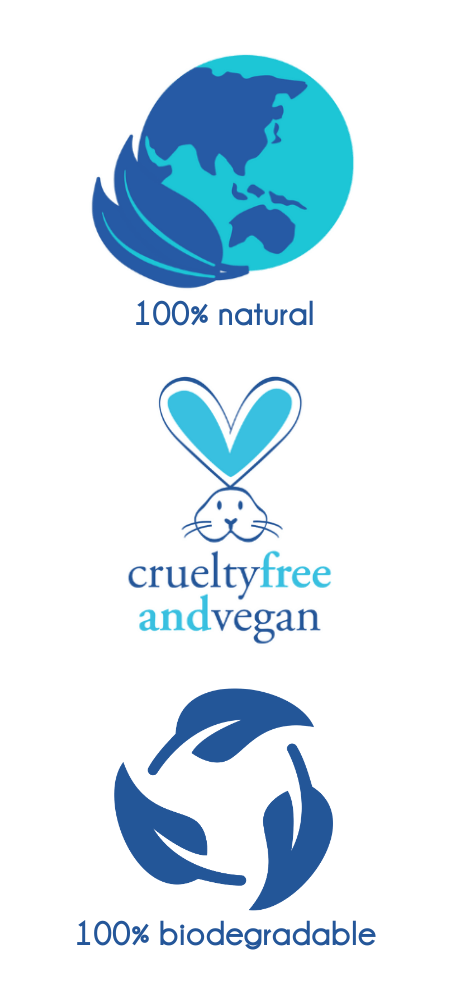Winter scalp and skin conditions
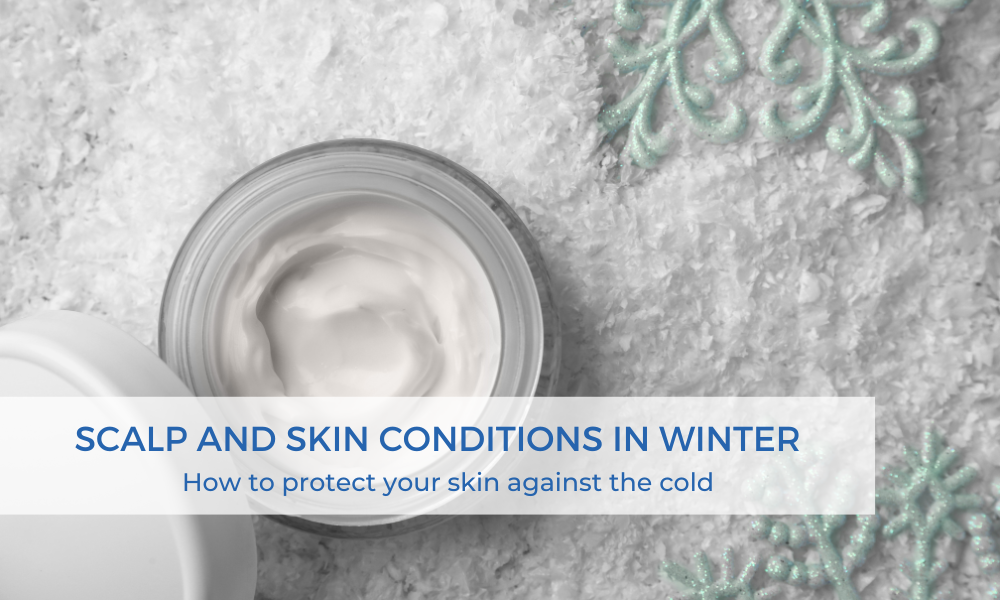
How to Protect Your Skin Against the winter Cold?
The winter months bring not only cold weather but often an increase in scalp and skin issues. Cold air, wind, and heated indoor environments all contribute to skin dryness and increased sensitivity. Whether it’s dandruff, irritation, or dry or oily scalp, nearly all skin types may experience worsening symptoms during the cold winter period. In this blog, we’ll discuss why this happens, how to keep your skin healthy during winter, and what common scalp and facial skin issues to look out for. Plus, we’ll share how to treat them effectively as part of a winter skincare routine, so your skin stays healthy and hydrated all season long.
Why is my skin worse in winter?
The winter season brings many challenges that directly affect the health of the scalp and facial skin. During the cold, dark, winter months, the skin’s protective mechanisms significantly diminish, leading to various problems. Below are the key factors contributing to the deterioration of skin conditions during winter.
Cold air and strong winds damage the skin’s natural barrier, making it harder to retain moisture. Additionally, the low humidity levels in heated indoor environments further exacerbate skin dryness, as the moisture content in the air decreases significantly during this time. Reduced sebum production means the skin is less able to protect itself from external factors, making it more sensitive and vulnerable. Due to these factors, unfortunately, many people experience skin dryness, irritation, and even flaking, during the winter months.
Weather and Temperature Change
Winter weather, especially cold and windy days, can lead to skin dryness. The air in heated indoor spaces also contributes to a decrease in the skin’s moisture levels, which can cause irritation and flaking. The alternating between cold and warm temperatures further exacerbates the situation, as the skin has to adapt to sudden changes. Wind has a particularly aggressive effect on the skin, as it affects its natural protective barrier, making it even more susceptible to dryness and environmental damage.
Frosty, cold weather slows down blood circulation, resulting in the skin receiving less oxygen and nutrients. This not only leads to dryness but also accelerates the aging process. Sudden temperature fluctuations, such as moving from the cold outdoors into a warm, dry indoor environment, further stress the skin, jeopardizing its condition and elasticity.
Weakened Immune System and Vitamin Deficiency
During the winter months, the lack of sunlight leads to a decrease in our body’s vitamin D levels, which weakens the immune system. This weakened immune response can contribute to an increase in skin problems, as the skin’s protection diminishes, making it more sensitive to various irritants. Vitamin D is crucial for skin regeneration and has anti-inflammatory properties; therefore, its deficiency results in slower healing and makes the skin more susceptible to various skin diseases, such as eczema or psoriasis.
Additionally, during winter, the intake of vitamins C and E often drops, which means less protection for the skin from harmful free radicals, as these vitamins act as antioxidants. A deficiency in these vitamins weakens the skin’s natural defense mechanisms and increases the likelihood of irritation, dryness, and signs of aging. As the immune system weakens, the skin becomes more prone to inflammation and struggles to cope with environmental stressors.
Mood and Mental Health Issues
The winter darkness and cold affect us not only physically but also psychologically. Increased depression and anxiety, as well as the onset of seasonal affective disorder (SAD), can contribute to the deterioration of skin condition. Stress, burnout, and exam periods also negatively impact skin health, as elevated stress hormone levels can lead to inflammation. Seasonal depression is particularly common during the winter months when the lack of sunlight influences our serotonin and melatonin levels. These hormones regulate our mood and sleep cycles, and when their balance is disrupted, it can lead to both mental and physical symptoms, such as worsening skin conditions.
Chronic stress increases cortisol production, which can cause oily skin and the appearance of acne while slowing wound healing and exacerbating skin inflammations. Additionally, lack of sleep, often triggered by stress, disrupts the skin’s regeneration process, resulting in tired and dull skin.
Social Issues and Loneliness
During the winter holidays, many people may experience loneliness and social isolation. The stress brought on by the holiday season and a lack of social connections also negatively impact skin health, as our mental state directly influences the appearance and sensitivity of our skin. Feelings of loneliness and the resulting stress can be physically taxing, raising cortisol levels and causing inflammation in the body. This worsens skin conditions, contributing to acne, redness, and dryness. Prolonged social isolation and the anxiety it brings also slow down the skin’s ability to regenerate, as stress weakens the immune system, making the skin less resilient against external irritants. Additionally, many people feel pressured by social expectations during the holiday season, further increasing mental strain, which is often reflected in facial skin, leading to dryness and other skin problems.
Common scalp and skin issues during winter
Rosacea
Rosacea is a skin condition that primarily affects middle-aged women and men, characterized by a butterfly-shaped redness on the face and a burning sensation due to the dilation of blood vessels. Hormonal changes, particularly those that occur during menopause, as well as cortisol deficiency, can trigger the problem and exacerbate inflammatory processes. Additionally, insulin resistance (IR) or polycystic ovary syndrome (PCOS) may contribute to the development of rosacea, as elevated testosterone levels can dilate pores, facilitating the proliferation of bacteria and mites, which generates inflammation.
Managing rosacea is particularly important in winter skincare, as cold and wind can further worsen skin sensitivity and intensify symptoms.
Seborrheic Dermatitis
Seborrheic dermatitis causes scaly patches, redness, and dandruff on the skin, often affecting the scalp, face, and chest. Increased sebum production leads to the clumping of skin cells, and the bacteria that proliferate on the scalp can trigger inflammation, causing itching and discomfort. This chronic inflammatory skin condition often worsens in winter due to cold air, wind, and dry air in heated indoor spaces, all of which contribute to the deterioration of the skin’s condition.
Cold weather can cause the skin to produce less sebum, resulting in a paradoxical situation of dry yet oily, flaky skin surfaces. Factors such as fatty foods, allergies, hormonal imbalances, and stress can also exacerbate the problem, which is particularly relevant during winter when stress levels and nutritional balance can easily be disrupted.
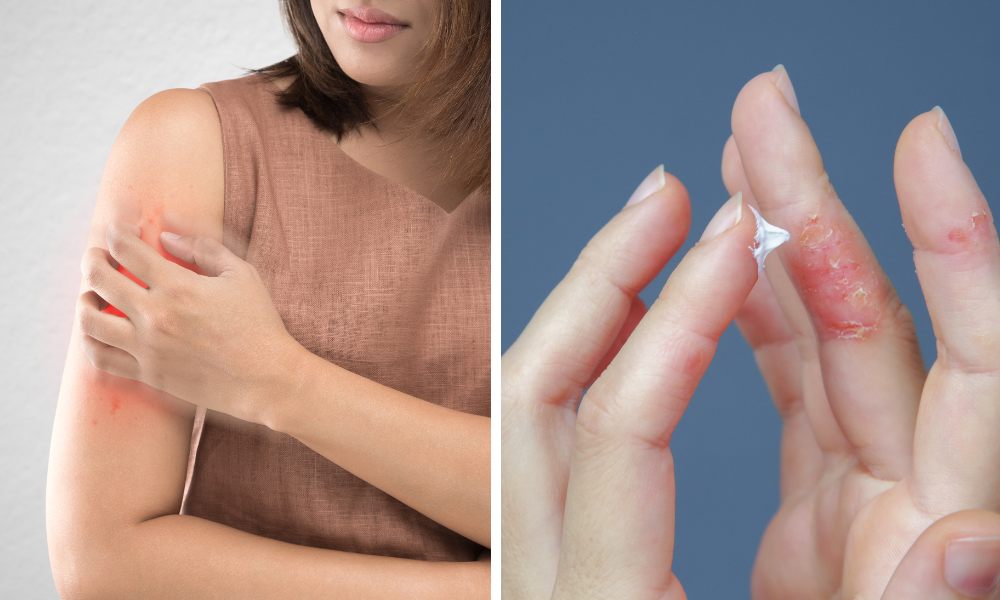
Psoriasis
Psoriasis is a common skin condition that can affect anyone and typically begins around puberty. It is characterized by the accelerated proliferation of skin cells, leading to inflamed, red patches covered with scaly, whitish layers. These patches most often appear on the scalp, knees, back, elbows, and chest. In addition to genetic predisposition, environmental factors play a significant role in its development, including stress, hormonal changes, and infections.
Psoriasis symptoms often worsen during the winter months due to cold air and the dry indoor environment, which reduce the skin’s hydration and can cause further irritation. The lack of sunlight also negatively impacts the skin’s condition, as UV rays can help alleviate psoriasis symptoms. Additionally, infections, such as sore throat, which are common in winter, can trigger or exacerbate symptoms. Certain medications, like beta-blockers, as well as liver problems or alcoholism, have also been linked to flare-ups of the disease. Psoriasis is a chronic condition that occurs in cyclical periods and often has psychological effects, as visible skin symptoms can lead to significant self-esteem issues for patients.
Eczema
Eczema is a chronic skin condition characterized by the appearance of inflamed, itchy patches, most commonly found in the skin folds, such as the elbows and knees. The skin condition is often associated with allergic reactions, stress, and digestive issues, making it essential to maintain a healthy diet and a balanced gut flora. There are different forms of eczema, including contact dermatitis, which develops in response to external irritants, such as chemicals or allergens. Chronic inflammation weakens the skin’s barrier function, allowing pathogens, irritants, and allergens to penetrate the skin more easily, worsening symptoms.
During the winter months, dry air and cold weather particularly negatively affect eczema-prone skin, as the skin can become even drier, increasing itching and inflammation. Additionally, stress plays a significant role in flare-ups, as elevated levels of stress hormones can induce inflammation. Therefore, it is crucial to implement stress management techniques, such as meditation or breathing exercises, along with proper skin hydration and the use of anti-inflammatory creams. Treating eczema requires a holistic approach that includes nutrition, stress management, and appropriate skin care.
Dehydration
Skin dehydration is a common issue in winter, often caused by cold air and heated indoor environments. Dry skin can lead to irritation, flaking, and a tight, uncomfortable feeling, which weakens the skin’s protective barrier. Proper hydration is essential, so it’s beneficial to use creams and serums rich in nourishing ingredients. Regular hydration is especially important in winter skincare to prevent dehydration and maintain the skin’s health.
Oily Dandruff
Oily dandruff is a condition characterized by excess oiliness and flaking of the scalp, which can lead to itching and irritation. It is often a result of seborrheic dermatitis, and factors such as bad hair care habits and stress can contribute to its development. The oiliness of the scalp results from the excessive activity of sebaceous glands, leading to the faster decline of skin cells and their accumulation, making dandruff inevitable. Oily dandruff is not only an aesthetic concern but also exacerbates scalp irritation, resulting in discomfort and itching. Hormonal changes, such as those occurring during puberty, menstrual cycles, or pregnancy, also play a significant role in its onset. Additionally, stress, poor nutrition, and inadequate hair care habits, such as washing your hair too frequently or using unsuitable shampoos, can further worsen the problem.
Autoimmune Skin Conditions
Autoimmune skin diseases, such as psoriasis and eczema, can worsen significantly during winter. The cold weather, dry air, and indoor heating can lead to skin dehydration, increasing itching and irritation. These conditions arise from abnormal reactions of the immune system, and during the winter months, stress and hormonal changes can contribute to the worsening of symptoms. Additionally, the lack of sunlight results in decreased vitamin D levels, which can further worsen the condition, as vitamin D plays a crucial role in the proper functioning of the immune system. Therefore, appropriate skincare and nutrition are especially important for those suffering from these conditions during the winter season.
How Can Common, winter skin and scalp issues Be Effectively Treated?
It’s important to avoid products enriched with chemicals, such as medications or plastics. But why is this so important?

Among the side effects can be skin thinning, which makes it more vulnerable, as well as dehydration, further compromising skin health. This phenomenon is particularly concerning because thin skin is not only more prone to injuries from various external irritants and bacteria, but the healing processes can also slow down. Thinned skin is more susceptible to cuts, bruising can occur, and signs of aging, such as wrinkles and age spots, may appear earlier. The frequent use of products filled with chemicals, such as certain exfoliants or those containing strong active ingredients, can also contribute to skin thinning, as they may irritate the outer layer of the skin and diminish its protective functions.
Additionally, medications absorbed through the skin can cause hormonal imbalances, affecting the entire body. The processing of toxins can also overload the kidneys and liver, damaging their functions in the long run. The skin, being the largest organ, is constantly exposed to various external substances, including pollutants, chemicals, and medications, which can easily penetrate the skin barrier and enter the bloodstream. This process is particularly concerning as it can lead to hormonal imbalance, resulting in numerous issues such as menstrual cycle disruptions, mood swings, or even the development of skin diseases. The accumulation of toxins in the body poses further risks, increasing the likelihood of secondary infections and leading to additional health problems.
Another potential side effect is the development of dependency to such products, which can be problematic because the body becomes accustomed to the active ingredients. As a result, increasingly larger quantities are needed to achieve the desired effect, further increasing the likelihood of side effects and health risks. Additionally, due to the skin’s dependency, it may become more challenging to switch to natural, less harmful alternatives, thereby placing even more strain on the body in the long run.
Among the potential side effects is the exhaustion and permanent damage to the skin cells or scalp, particularly the hair follicles. This is especially true for products containing DHT blockers and steroids, which can disrupt the natural functioning of these cells. Such damage can lead to permanent hair loss or a decreased ability of the skin to regenerate, resulting in irreversible consequences for maintaining healthy skin and hair.
The question thus arises:
How to effectively treat common, winter skin and scalp issues, both internally and externally?
Internal balance
Maintaining a healthy lifestyle involves not only external care but also upholding internal balance. For our bodies to function optimally, it is essential to intake the right nutrients, eliminate toxins, and reduce stress. Personalized diets, mineral analysis, and natural, vegan-based superfoods and herbs can help achieve this balance. Maintaining an internal balance is especially important during winter skin care, as optimal body functioning supports the health of the skin and hair during the cold months.
The foundation of natural internal treatment is a balanced diet rich in vitamins and minerals.
Diet
During the winter months, diet plays a significant role in maintaining and protecting skin hydration. It’s beneficial to consume foods rich in omega-3 fatty acids, as they help maintain skin elasticity and prevent dryness. Sources of omega-3s include fatty fish like salmon, mackerel, and herring, as well as flaxseeds and walnuts.
Antioxidants, particularly those found in foods high in vitamins A, C, and E, are also essential during winter, as they aid in skin regeneration, protect against damage from free radicals, and support collagen production, which is responsible for skin firmness. It’s advisable to eat plenty of dark leafy greens, sweet potatoes, citrus fruits, berries, and almonds during this time. Additionally, maintaining proper hydration through adequate water intake is crucial.
Foods rich in probiotics, such as yogurt and kefir, also contribute to maintaining a balanced gut flora, which directly impacts skin health. Therefore, a winter diet is not only important for preserving internal health but also significantly contributes to the beauty and protection of the skin.
It is essential to create a suitable diet that supports the body’s healthy functioning. This involves identifying any nutrient deficiencies, such as vitamins, minerals, or proteins. Recognizing our individual needs and deficiencies can help us consume specific foods to replenish these nutrients, optimize our nutrition, strengthen our immune system, boost energy levels, and improve overall well-being.
Nutrients
A nutrient-rich diet provides the body with the necessary vitamins for proper functioning, especially during the winter months when fresh vegetables and fruits are less available. During this time, pickled foods and seasonal root vegetables, such as beets, carrots, and celery, play a crucial role as valuable sources of vitamins and minerals. These vegetables not only supply the body with fiber but are also rich in antioxidants that help strengthen the immune system and protect cells.
Pickled foods, like sauerkraut (pickled cabbage), are not only abundant in vitamin C but also contain probiotics that support digestion and maintain gut flora balance. Consuming such foods helps replenish the body’s vitamin reserves, aids in preserving health, and contributes to the condition of the skin, hair, and nails during the cold winter months.

It’s worth supplementing the diet with superfoods, which are exceptionally rich in antioxidants and micronutrients. These can help ensure that your body receives an adequate amount of nutrients and vitamins, even amidst the hustle and bustle of everyday life.
Minerals and Fiber
Minerals such as calcium, magnesium, zinc, and iron are essential for the proper functioning of the body, as they are crucial for maintaining the health of cells, tissues, and systems. They play a particularly important role in preserving bone and muscle health and maintaining hormonal balance, as adequate mineral intake promotes the absorption of vitamins and metabolism, thereby improving the condition of hair and skin.
Additionally, fiber supplements are vital for digestive health as they promote bowel movements, eliminate toxins, and stabilize blood sugar levels. Fiber also helps maintain a feeling of fullness, which can assist in weight management and improve gut health, thus preventing gastrointestinal issues. Finally, probiotics, which support gut flora balance in the form of beneficial bacteria, also play a key role in enhancing digestion and strengthening the immune system. Natural sources of probiotics, such as yogurt and kefir, contribute to nutrient absorption, ensuring optimal gut function.
Indian Adaptogenic Herbs
Indian adaptogenic herbs help in managing stress and maintaining the body’s internal balance, which is particularly important during everyday challenges and increased workloads. These herbs, such as ashwagandha, tulsi (holy basil), and brahmi, not only help reduce the body’s reactions to stress but also contribute to hormonal balance. Adaptogens improve blood circulation in the scalp, thereby stimulating hair growth, strengthening hair follicles, and reducing hair loss, which is often a consequence of stress and exhaustion.
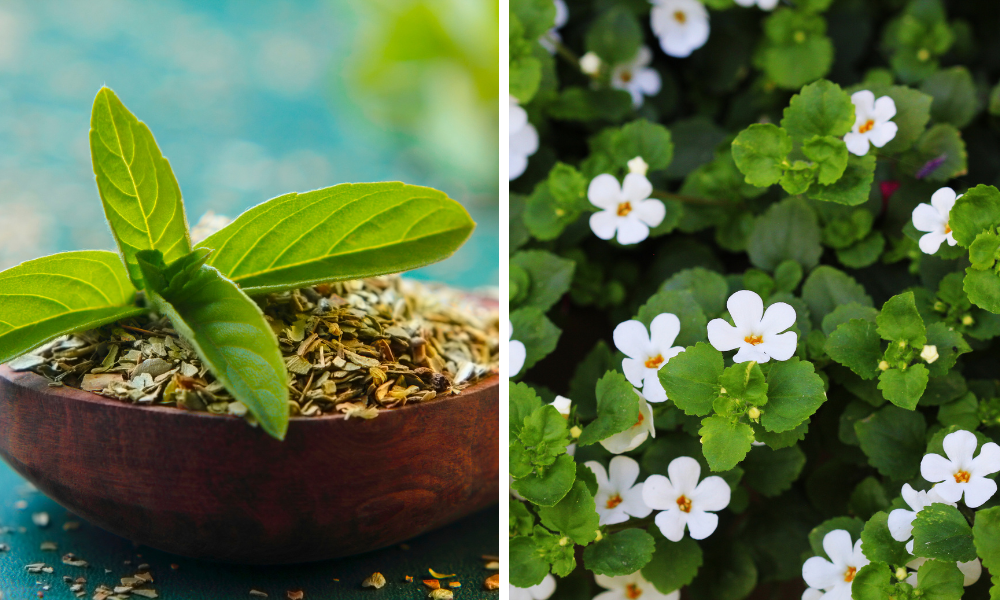
Additionally, they enhance the body’s energy levels, help reduce fatigue, and contribute to maintaining vitality, thereby increasing physical and mental resilience. By regularly consuming these herbs, we can not only support the health of our hair and skin but also promote a more balanced and energetic lifestyle, which is essential for stress management and overall well-being.
Regular Detoxification
Regular detoxification supports the body’s natural cleansing processes, aiding the functions of the liver, kidneys, and digestive system. Herbal teas, such as green tea or nettle tea, can assist in detoxification while also providing antioxidants to the body. These teas can contribute to reducing fatigue and enhancing the health of the skin and hair.
Stress Management
Stress management is crucial for both mental and physical health, especially after the summer months. Head spa treatments and acupressure scalp massages can help reduce tension and promote relaxation. Incorporating mindful rest and relaxation exercises into your daily routine can improve quality of life and help manage stress-related issues.
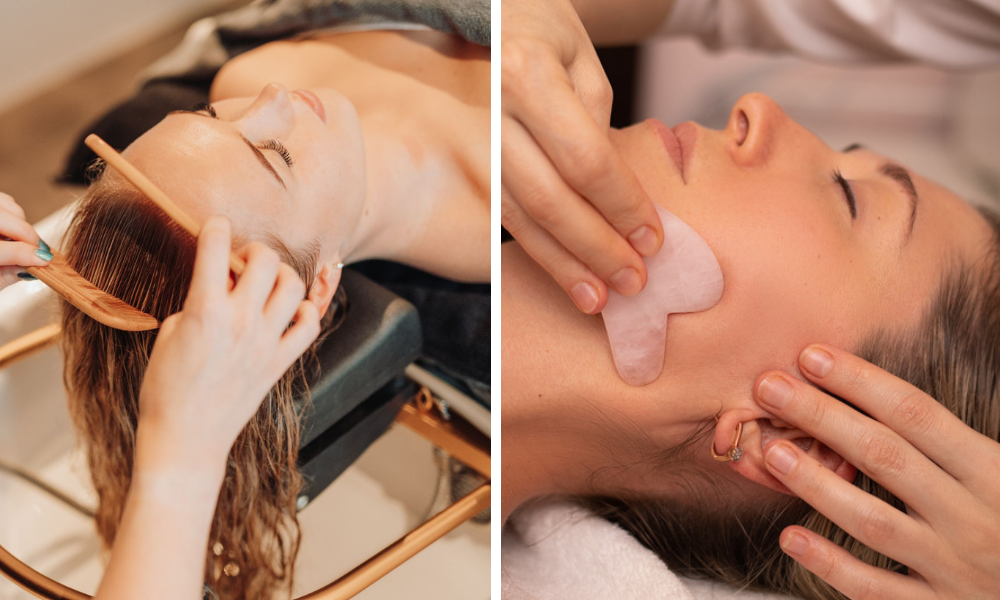
The history of massage dates back over 5,000 years, with the foundations of head spa treatments rooted in ancient Chinese medicine. This unique, stress-relieving treatment has healing and relaxing properties, alleviating headaches, refreshing the scalp, and rejuvenating both the body and spirit.
Japanese head massage adopts a holistic approach, focusing on the scalp, hair, neck, and shoulders while stimulating blood circulation to improve the health of the hair and scalp. Moreover, Head Spa encourages us to set aside our daily concerns and turn inward, aiding in stress relief and the creation of inner balance.
In Indian traditions, head massage is also practiced as a spiritual exercise, promoting the restoration of physical and mental harmony, while also contributing to the rejuvenation of the facial skin.
Exercise, Cardio, Yoga, and Meditation
Regular physical activity, including sports, cardio exercises, yoga, and meditation, is essential for maintaining health. These activities stimulate blood circulation, strengthen muscles, and enhance mood. Yoga and meditation are particularly effective in supporting mental health, helping to reduce stress and promote inner peace.
More Sleep, Rest, and Social Activities
Adequate sleep, rest, and social activities are vital for maintaining both physical and mental well-being. Quality sleep improves recovery and boosts energy levels, while leisure activities strengthen social connections and contribute to happiness. An active social life helps reduce stress and enhance overall quality of life.
External Treatment
Chemical-Free Products
It is important to use chemical-free products during external treatments that gently care for the skin and scalp. By avoiding synthetic ingredients such as fragrances, preservatives, and parabens, we can reduce the risk of allergic reactions and irritation. Natural ingredients like shea butter, jojoba oil, and aloe vera help restore and maintain the skin’s protective barrier. Regular use of these products promotes an improvement in skin condition, especially during the winter months.
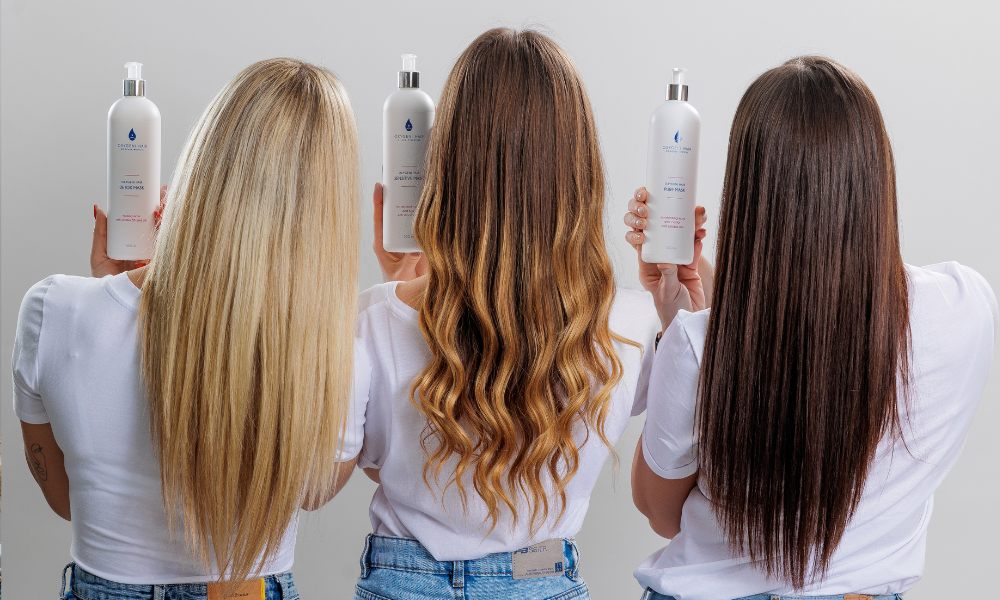
Oxygeni Hair products are 100% chemical-free, ensuring gentle and effective care for the scalp and facial skin. Discover our natural solutions and maintain your skin’s health during this cold season!
Oxygen Therapy
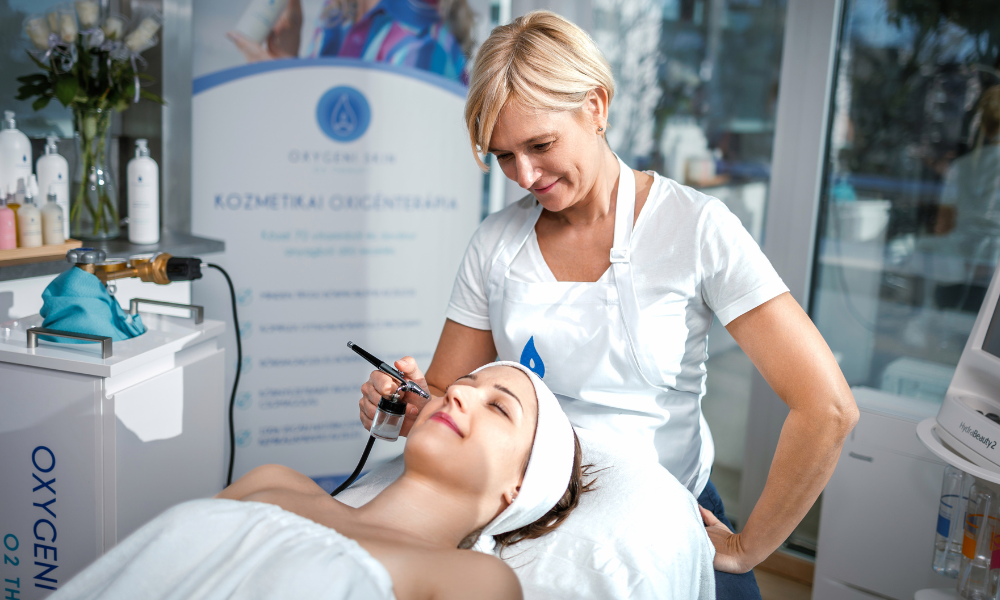
In the winter months, when the cold weather and dry air from heated indoor spaces can take a toll on the skin, oxygen therapy offers a particularly effective solution for maintaining the health of the scalp and facial skin. Oxygen therapy stimulates blood circulation, enhances the oxygen supply to skin cells, and promotes the skin’s natural regeneration processes. This not only helps reduce dryness and irritation but also improves the skin’s elasticity and hydration. It is especially beneficial for the scalp, as it helps alleviate dandruff and itching, contributing to the overall health of the hair. Choose oxygen therapy as part of your winter skincare routine and experience its refreshing and revitalizing effects on your skin!
In winter, the cold, windy weather and dry indoor air can dry out and irritate the skin, leading to various issues such as eczema and rosacea. Regularly moisturizing the skin, managing stress, and maintaining a diet rich in vitamins can help manage these conditions. Using natural, chemical-free products provides gentle care for the skin.
OXYGEN THERAPY AND OXYGENI HAIR PRODUCT REVIEWS

